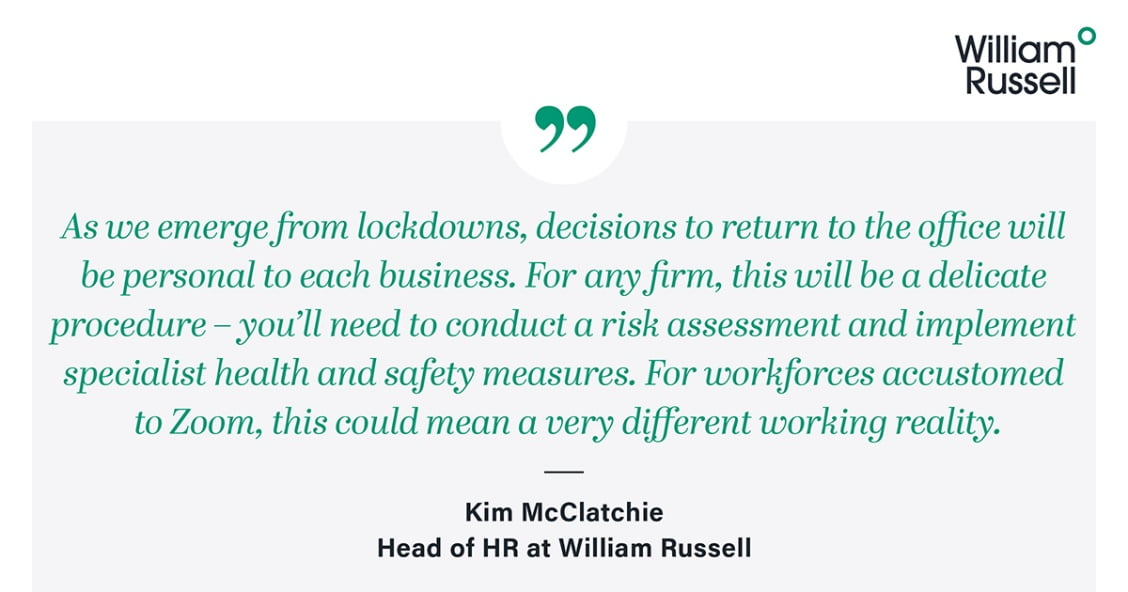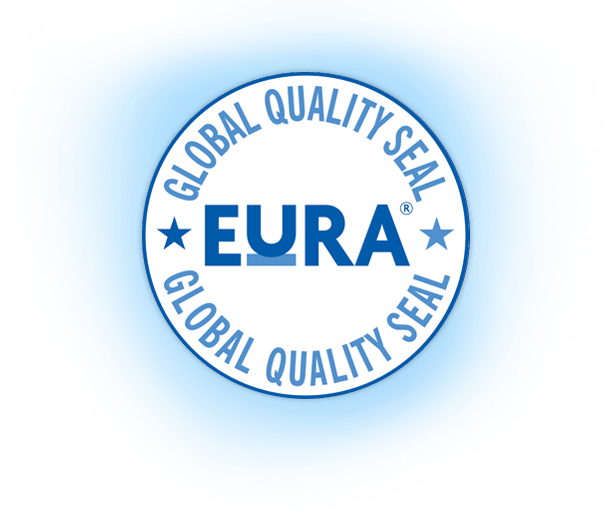The return to work after COVID-19 is a much-anticipated milestone – but for employers who work with expats, there’s the added complexity of international rules. Understanding the government guidelines and protocols can help to secure a safe return for your overseas staff.
When lockdowns begin to lift, many businesses may start to consider a move back to the workplace. In London, some City firms are putting measures in place for office redesigns and testing schemes to bring about a return, while China saw success with mask policies and staggered hours when lockdowns were lifted in 2020.
The measures your company can contemplate will depend on where in the world your expat staff are located. Whether you’re planning a phased return to work or an imminent office reopening, there are several factors to consider, including managing outbreaks, vaccine policies and new ways of working.
How are governments around the world taking precautions?
Current guidance varies by region, making the role of managing an expatriate workforce more complex.
In Australia, for instance, the state of Victoria relaxed measures in March 2021 to remove the cap on office worker numbers. However, there still need to be at least two square metres of space per person.
In Taiwan, most staff were back in the office by July 2020, but in countries such as France, a growth of infections means new restrictions are being imposed.
The picture varies considerably and can change quickly, so it’s a good idea to follow changes in the jurisdictions where your expats live and work.
What are the UK government guidelines for returning to work during COVID-19?
The UK government’s return to work guidelines state that offices and contact centres can be open throughout all stages of lockdown easing in 2021, as long as they are ‘COVID-secure’. This means undertaking measures including a risk assessment, social distancing enforcement and cleaning, for instance.
Despite this allowance, the rules are more complex than they initially appear – UK employees who can work from home should still do so under the current rules.
It is possible that the rules for office work will be relaxed on or after 21st June in the UK. If your employees work from home currently, it could be worth keeping tabs on any plans to remove this advice as the summer approaches.
Creating a COVID-19 return to work safety protocol
For human resources (HR) professionals working across borders, all this complexity brings tough decisions which are personal to each business.
The Chartered Institute of Personnel Development (CIPD) suggests using three key tests to determine if returning to the workplace is right for your organisation. These are:
- Is it essential?
- Is it sufficiently safe?
- Is it mutually agreed?
On a practical level, this means considering if your expats really do need face-to-face contact or if they could perform a version of their role remotely. It also means digging into the specifics at each place of work and asking employees how they feel.

A return to the office could come with bumps in the road, too, and opening safely doesn’t necessarily mean there’ll be no risk. Any manager responsible for overseeing this new normal might need to deal with outbreaks and support self-isolating staff.
Will employers be able to mandate COVID-19 vaccines?
As it stands, most employers around the world will not be able to mandate that their workforce takes up a COVID-19 vaccine, but this may be subject to change. In the United States, a lawsuit from employees of the Los Angeles Unified School District has already sought to challenge such a mandate, while elsewhere plans for COVID certificates are yet to be finalised.
It’s possible employees will have vaccine-related anxieties. Expats might find the vaccine rollout is slower in their country of residence than it is in their home country, or they may be concerned about moves to make vaccines mandatory at work.
Some of these anxieties might mean a cautious policy is sensible. Even though compulsory vaccination could become the norm in some sectors, there are other options, such as asking unvaccinated employees to take regular tests.
Maintaining social distancing at work
Another consideration is the importance of maintaining social distance and the measures you might need to put in place to make this easier for expats.
According to the Health and Safety Executive, signage and tape can be useful measures to maintain social distancing. You might consider asking a local employee to cordon off sinks, bathroom cubicles and kitchen areas that might otherwise become crowded.
Communication can also be a valuable tool. Keep sending reminders and ask staff on the ground to report back with any concerns.
Investing in personal protective equipment (PPE) before your return to work
Distance may not always be achievable, so consider the additional kit you may need to purchase. This might include high-grade masks, visors, gloves and even goggles.
These items are known to be more important in certain industries, but they may also have a greater role to play in regions where expats are still largely working in shared offices and taking public transport.
Providing protective kit could also be a simple gesture to let expats know you care about their welfare – even from afar.
Your phased return to work schedule: Steps to consider
To plan for a return to the office safely as the pandemic eases, you might wish to consider using this example checklist:
- Make a risk assessment – the Health and Safety Executive has a handy COVID-19 risk assessment guide.
- Create a return to the office plan – if it’s deemed right for your business. You may wish to consider office layout and capacity, appropriate signage and external factors, such as employee travel plans.
- Communicate your plans – people like to be kept in the loop, especially in an international context, so send regular updates and ask expats for their views.
- Monitor the situation – if the pandemic has taught us one thing, it’s that life can change fast, so it’s best to keep monitoring the situation. It might be that a local outbreak puts your decision on ice, or perhaps you’ll need to reverse a call if measures are proving difficult for employees to follow.
How expat lifestyle affects return to work decisions
Lifestyle ambitions are increasingly important in the expat world, so management teams may wish to consider these factors as part of their return-to-work strategy.
Expats are likely to value travel opportunities and experiences – including the opportunity to be immersed in a new culture – so may be particularly keen to embrace a new normal, whatever this may look like.
Mental wellbeing has become a particular concern during the pandemic for both remote teams and key workers – 65% of people say their mental health has been negatively impacted by the pandemic.
According to a report by AXA Global Healthcare, 38% of international workers felt ‘very supported’ in terms of health, but 23% still said their employer could do more to support mental health. This suggests there may be alternatives to a rush back to the office, even for lockdown weary workers.
For high-risk employees, returning to work may be more complex, so a personalised and empowered approach is usually better than top-down enforcement. You might like to offer flexibility to employees with certain health conditions or personal circumstances.
Of course, COVID-secure office policies are not the only way to support employees. International health insurance is a common employee benefit for expats – and it can also bring reassurance in uncertain times.
This content originally appeared on William Russell.
Article provided by Damian Porter, Affiliate Sales Manager, William Russell – Expat Healthcare Insurance. To find out more about expat Healthcare Insurance Plans for groups or individuals with William Russell click here or email Damian at damian.porter@william-russell.com and mention Klippa Relocation.










